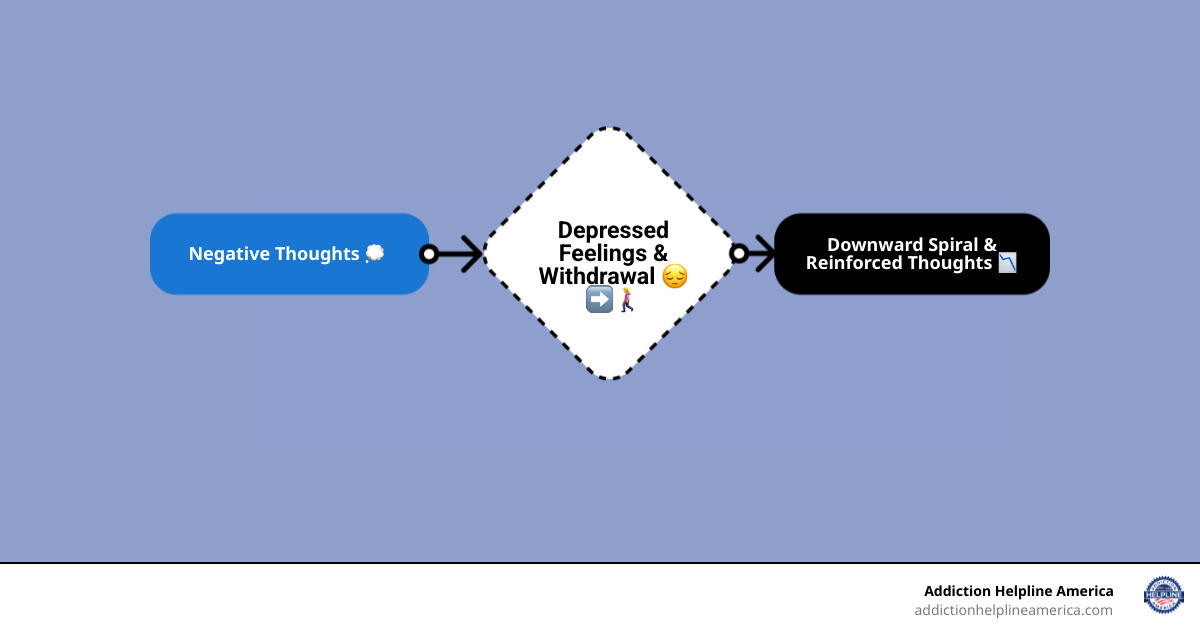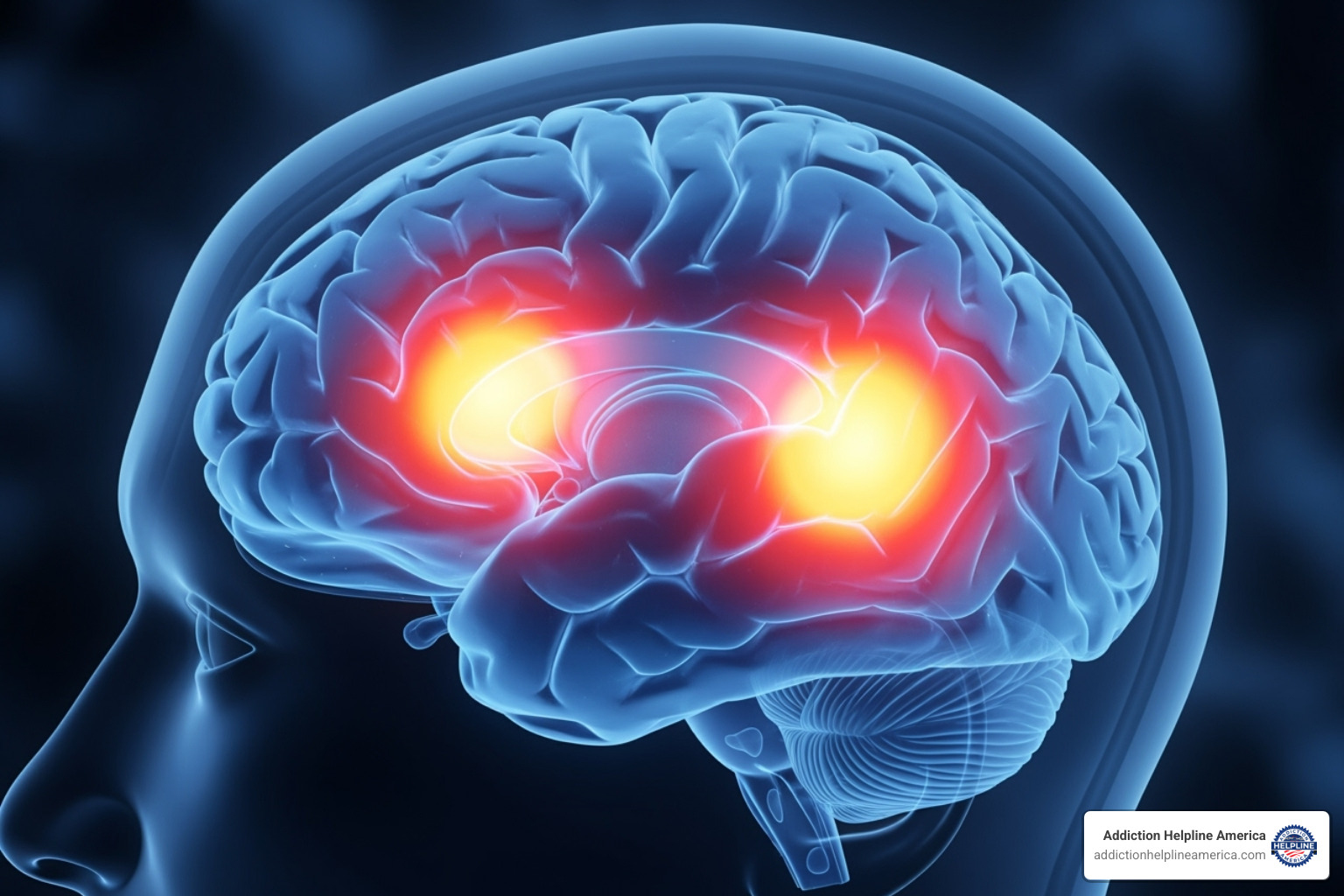
You’re Not Alone in Feeling This Way
Depression therapy Pasadena offers hope when persistent sadness, hopelessness, and lack of motivation begin interfering with your daily life. If you’re struggling with these feelings, you’re part of a community of over 142,647 Pasadena residents who understand that seeking help is a sign of strength, not weakness.
Quick Guide to Depression Therapy in Pasadena:
- Common symptoms: Persistent sadness, loss of interest, sleep changes, low energy, difficulty concentrating
- Therapy types available: Cognitive Behavioral Therapy (CBT), supportive counseling, integrative approaches
- Cost range: $45-$250 per session with many sliding scale options
- Treatment duration: Typically 16-20 sessions for optimal results
- Success rate: 80-90% of people find relief with proper treatment
- Local resources: Over 25 qualified therapists accepting new patients
As one source notes: “Feeling low from time to time is a natural part of life, but when feelings of sadness, hopelessness, or a lack of motivation persist and begin to interfere with daily life, it may indicate a depressive disorder.”
Depression is a medical condition – not a personal failure. The brain processes emotional pain in the same area as physical pain, which explains why depression can feel so overwhelming. But here’s the encouraging news: depression is highly treatable, and Pasadena offers accessible, quality care for individuals and families.
At Addiction Helpline America, we’ve helped thousands of individuals connect with qualified mental health professionals who specialize in depression therapy Pasadena residents can trust. Our team understands that finding the right therapist can feel overwhelming when you’re already struggling, which is why we provide personalized guidance to match you with care that fits your specific needs and circumstances.
1. Recognizing the Signs: Common Depression Symptoms
Depression feels different from just having a tough week or feeling down after disappointing news. It’s a persistent weight that settles over your daily life, making ordinary tasks feel overwhelming and draining the color from activities you once enjoyed.
If you’re wondering whether what you’re experiencing might be depression, you’re already taking an important step. Depression therapy Pasadena professionals see many people who initially dismissed their symptoms as “just stress” or “being tired.” Understanding the signs can help you recognize when it’s time to reach out for support.
Emotional Symptoms
The emotional experience of depression often starts with persistent sadness that doesn’t lift, even when good things happen. You might feel empty inside, like something essential is missing. Many people describe it as carrying a heavy blanket of hopelessness – where the future feels bleak and nothing seems likely to improve.
Irritability becomes more frequent, and small annoyances that wouldn’t have bothered you before now feel overwhelming. You might snap at loved ones or feel frustrated by everyday situations. Feelings of worthlessness creep in, along with guilt that feels disproportionate to whatever triggered it.
Some people also experience anxiety and restlessness alongside their depression, making it hard to sit still or feel calm.
Behavioral Changes
One of the most telling signs is anhedonia – losing interest in things that used to bring you joy. Hobbies feel pointless, social gatherings seem exhausting, and even favorite foods lose their appeal. You might find yourself withdrawing from friends and family, declining invitations, or making excuses to avoid social connections.
Sleep disturbances are incredibly common. Some people struggle with insomnia, lying awake with racing thoughts, while others sleep excessively, using it as an escape from overwhelming feelings. Appetite changes often follow – either eating much less than usual or turning to food for comfort, leading to noticeable weight changes.
Physical Symptoms
Depression doesn’t just affect your emotions – it shows up in your body too. Chronic fatigue makes even simple tasks feel monumental. Getting out of bed, taking a shower, or preparing a meal can feel like climbing a mountain.
You might experience unexplained aches and pains, headaches, or digestive issues that don’t seem to have a clear medical cause. This happens because emotional distress and physical pain are processed in similar areas of the brain, according to Harvard Medical School research on the gut-brain connection.
How Depression Can Manifest in Daily Life
These symptoms combine to create real challenges in your everyday life. Work performance often suffers as concentration becomes difficult and decision-making feels impossible. You might miss deadlines, struggle to focus in meetings, or find yourself staring at your computer screen without accomplishing anything.
Relationships can strain under the weight of irritability, emotional withdrawal, and reduced capacity for connection. Partners, friends, and family members might feel shut out or confused by the changes they’re seeing.
Personal health often takes a backseat. Regular exercise stops, healthy eating becomes inconsistent, and basic self-care feels overwhelming. The World Health Organization notes that depression can make even fundamental daily activities feel impossible.
You might also notice psychomotor changes – either feeling restless and unable to sit still, or experiencing slowed movements and speech that make everything feel like it’s happening in slow motion.
High-achieving individuals often experience depression in subtle ways that can be easy to miss. Masking becomes second nature – presenting a cheerful face to the world while struggling internally. Increased perfectionism might emerge as you overcompensate for feelings of inadequacy. Difficulty accepting compliments becomes common, as does self-medication through alcohol, work, or other substances.
Chronic procrastination on important tasks, persistent cynicism, and gradual social withdrawal from events that used to bring joy are all warning signs that shouldn’t be ignored.
If these experiences feel familiar, know that you’re not alone, and help is available. Depression is a medical condition – not a character flaw or personal weakness. Just like you’d see a doctor for a broken bone, seeking depression therapy Pasadena support is a practical step toward feeling better.
2. Understanding the Brain on Depression & Neuroscience-Informed Therapy
Have you ever wondered why depression feels so overwhelming, or why simple tasks suddenly seem impossible? The answer lies in what’s happening inside your brain. Depression therapy Pasadena providers increasingly use neuroscience research to help people understand that depression isn’t a character flaw or weakness – it’s a real medical condition that changes how your brain works.
When depression takes hold, your brain’s reward system – the part responsible for feeling pleasure and motivation – essentially goes offline. This explains why your favorite pizza tastes like cardboard, or why spending time with friends feels exhausting instead of energizing. It’s not that you’ve lost the ability to enjoy life forever; your brain is simply having trouble processing positive experiences the way it normally would.
The impact goes deeper than just mood. Chronic stress and persistent sadness actually change your brain’s structure over time. Areas responsible for mood regulation, memory, and decision-making can shrink or become less active. Meanwhile, the parts of your brain that process stress and negative emotions can become hyperactive, creating a cycle that’s hard to break on your own.
Here’s something fascinating that many people don’t realize: your brain processes emotional pain in the same regions where it processes physical pain. This isn’t just a metaphor – when you say your heart “aches” from sadness, your brain is literally experiencing something similar to physical injury. No wonder depression can leave you feeling physically exhausted and sore.
But here’s the hopeful part of the story. Your brain has an amazing ability called neuroplasticity – basically, it can rewire itself throughout your entire life. Think of it like your brain’s ability to create new roads when the old ones are blocked. With the right support and techniques, you can literally help your brain build healthier pathways.
This is where neuroscience-informed therapy becomes so powerful. Instead of just talking about feelings, these approaches work with your brain’s natural ability to change and heal. Therapists trained in these methods understand how trauma and stress affect brain function, and they use specific techniques to help restore balance.
For example, your therapist might teach you breathing exercises that calm your nervous system, or help you practice mindfulness techniques that strengthen areas of your brain involved in emotional regulation. They might also help you understand why certain situations trigger such strong reactions, giving you tools to work with your brain instead of against it.
The beauty of neuroscience-informed depression therapy Pasadena offers is that it combines the latest brain research with compassionate, personalized care. You’re not just learning to cope with symptoms – you’re actively participating in rewiring your brain for better mental health. It’s like having a skilled guide help you build new neural highways that lead to healing and hope.
3. Effective Types of Depression Therapy in Pasadena
When you’re searching for depression therapy Pasadena, you’ll find a rich variety of approaches designed to meet you exactly where you are. The most effective treatments don’t follow a one-size-fits-all model. Instead, they’re built around personalized treatment plans that consider your unique experiences, preferences, and goals.
What makes depression treatment truly powerful is its foundation in evidence-based practices – therapeutic methods that researchers have tested extensively and proven effective. But here’s something equally important: the therapeutic relationship itself often becomes one of the most healing aspects of your journey. That connection and trust you build with your therapist can be just as transformative as the specific techniques you’ll learn together.
Pasadena’s mental health community offers several highly effective approaches, each with its own strengths:
| Therapy Approach | Approach | Best For | Session Focus |
|---|---|---|---|
| Cognitive Behavioral Therapy (CBT) | Identifies and changes negative thought patterns through structured, goal-oriented sessions | People who want practical tools and prefer a structured approach | Challenging distorted thinking, developing coping strategies, behavioral changes |
| Supportive Counseling | Provides a safe, non-judgmental space for emotional processing and validation | Those needing immediate emotional support and encouragement | Processing feelings, building self-esteem, developing healthy coping mechanisms |
| Integrative Therapy | Combines multiple therapeutic techniques custom to individual needs | People with complex situations or those who haven’t found success with single approaches | Holistic healing addressing emotional, physical, and practical life challenges |
Cognitive Behavioral Therapy (CBT)
CBT works by helping you identify negative thought patterns that fuel depression. You know those inner voices that tell you “nothing will get better” or “I’m not good enough”? CBT teaches you to recognize these thoughts and question their accuracy.
Through cognitive restructuring, you’ll learn to challenge distorted thinking and replace it with more balanced, realistic perspectives. Behavioral activation is another key component – your therapist will help you gradually re-engage with activities that bring meaning and pleasure back into your life.
The skill-building aspect of CBT is particularly empowering. You’ll develop a toolkit of techniques you can use long after therapy ends. Many CBT therapists also assign homework assignments – practical exercises that help you practice new skills between sessions.
Supportive Counseling
Sometimes what you need most is simply a safe space to be heard and understood. Supportive counseling provides exactly that – a warm, non-judgmental environment where you can process your feelings without fear of criticism.
Your therapist offers emotional support while helping you develop practical coping strategies. Together, you’ll work on goal setting that feels manageable and realistic for your current situation. The encouragement and validation you receive can be incredibly healing, especially if you’ve been struggling alone.
This approach is particularly helpful when you’re in crisis or feeling overwhelmed. It provides the emotional stability you need while building your confidence to tackle deeper therapeutic work.
Integrative Therapy
Integrative therapy recognizes that depression affects every aspect of your life. By combining multiple therapeutic techniques, your therapist can address your specific needs more comprehensively. One session might focus on processing emotions, while another tackles practical life challenges.
This approach is custom to individual needs, which means your treatment evolves as you do. The focus on holistic well-being considers not just your mental health, but how depression impacts your relationships, work, and physical health.
Addressing both emotional and practical challenges makes integrative therapy particularly effective for people dealing with complex situations or multiple stressors alongside their depression.
The benefits of seeking depression therapy Pasadena extend far beyond symptom relief. You can expect a process that’s empowering – giving you tools to manage symptoms and build resilience. It’s insightful, helping you understand the deeper patterns behind your depression. Most importantly, it’s supportive, providing that crucial safe space to heal.
Research consistently shows therapy is highly effective. The American Psychiatric Association reports that 80% to 90% of people with depression eventually find relief with proper treatment. With consistent effort – typically 16 to 20 sessions for optimal results – you can learn to manage symptoms, build resilience, and reclaim your life.
Pasadena therapists guide you through this journey, helping you silence self-critical voices, process past hurts, and cultivate hope. They equip you with coping skills for future challenges, fostering the emotional freedom you deserve for a more fulfilling, authentic life.
4. How to Find and Afford the Right Therapist in Pasadena
Finding the right therapist for depression therapy Pasadena is one of the most important steps in your healing journey. Think of it like finding a trusted guide who will walk alongside you as you steer through difficult times. The connection you build with your therapist – what professionals call the therapeutic alliance – often determines how successful your treatment will be.
Many therapists in Pasadena understand how crucial this first connection is, which is why they offer free 15-minute consultations. This brief conversation gives you a chance to ask questions, get a sense of their personality, and see if their approach feels right for you. It’s perfectly normal to “shop around” until you find someone who clicks with you.
When looking at therapist profiles, you’ll see different credentials like Licensed Marriage and Family Therapists (LMFTs), Psychologists (PhDs or PsyDs), and Licensed Clinical Social Workers (LCSWs). All of these professionals are qualified to help with depression, though they may specialize in different techniques or populations. You’ll also want to consider whether you prefer in-person sessions or the convenience of online therapy – both options are widely available in Pasadena.
Steps to Find Qualified Depression Therapy in Pasadena
At Addiction Helpline America, we know that searching for a therapist can feel overwhelming when you’re already struggling with depression. That’s why we’re here to make the process simpler and more personal.
Start with our directory – we can connect you directly with qualified professionals who specialize in depression treatment in Pasadena. Our team provides personalized guidance to help you find the right match for your specific needs and situation.
Ask for referrals from people you trust, like your primary care doctor or close friends who’ve had positive therapy experiences. Local mental health practices can also offer comprehensive services and may be excellent starting points for your search.
Always verify licenses by checking that your potential therapist is licensed and in good standing with California’s licensing board. This simple step ensures you’re working with a qualified professional.
Read therapist bios carefully – many practitioners have detailed online profiles that explain their treatment philosophy and areas of expertise. These profiles can give you valuable insight into their approach before you even make that first call.
Prepare thoughtful questions for your initial consultation. Ask about their experience treating depression, what therapeutic approaches they use most often, how they track progress, and what a typical treatment timeline looks like. Don’t be afraid to ask about their personality style too – some people prefer a more direct approach while others need gentler guidance.
Affordable Options for Depression Therapy in Pasadena
We believe that cost should never be a barrier to getting the mental health support you need. The encouraging news is that with Pasadena’s median annual income of $72,402, regular therapy sessions are within reach for many families in our community.
Therapist fees in Pasadena typically range from $45 to $250 per session, with most practitioners offering flexible payment options. Many therapists understand that everyone’s financial situation is different, so don’t hesitate to ask about sliding scale fees that adjust based on your income.
Insurance coverage can significantly reduce your out-of-pocket costs. Many therapists and clinics accept major health insurance plans. Call your insurance provider directly to understand your mental health benefits, including your deductible and co-pay amounts.
Community resources provide additional affordable options throughout Pasadena. Community mental health centers and training clinics often offer low-cost counseling with therapists-in-training who work under experienced supervision. The Substance Abuse and Mental Health Services Administration (SAMHSA)’s Behavioral Health Treatment Services Locator is an excellent national resource for finding these treatment options in your area.
Therapy is a long-term investment in your well-being. Research shows that 16 to 20 sessions are typically needed for optimal results, and therapy’s benefits tend to be more lasting than medication alone. When you consider the profound impact depression can have on your work, relationships, and overall quality of life, investing in professional treatment often pays for itself many times over.
5. Building Resilience: Resources Beyond Individual Therapy
Depression therapy Pasadena works best when it’s part of a bigger picture. Think of individual therapy as the foundation of your healing journey, but building lasting resilience often means creating a whole support network around yourself. It’s like having a team of cheerleaders, coaches, and teammates all working together to help you win.
Your therapist in Pasadena does amazing work during your sessions – teaching you coping skills, helping you understand your thoughts and feelings, and giving you personalized strategies to handle life’s curveballs. But the real magic happens when you take those tools and use them in your daily life, supported by other resources that keep you strong and healthy.
Building resilience means taking care of your whole self, not just your mind. Regular exercise can be as effective as medication for some people with depression – even a 20-minute walk can boost your mood. Getting enough sleep is crucial too, since depression and sleep problems often go hand in hand. Eating well gives your brain the fuel it needs to heal, while avoiding alcohol and drugs prevents setbacks that can make depression worse.
Mindfulness and meditation might sound fancy, but they’re really just about learning to be present with your feelings without getting overwhelmed by them. The Mayo Clinic has found that these practices can significantly improve overall well-being. Your therapist can teach you these techniques, but practicing them at home – maybe for just five minutes a day – helps them become second nature.
Preventing relapse is a big part of building resilience. This means learning to recognize your early warning signs and having a plan ready. Maybe you notice you start sleeping too much or avoiding friends when depression creeps back in. Having strategies ready – like calling your therapist, reaching out to a friend, or using your coping skills – can stop small dips from becoming major setbacks.
Local and National Support Systems
Pasadena has a warm, supportive community that extends far beyond therapy offices. Support groups through organizations like the National Alliance on Mental Illness (NAMI) let you connect with people who truly understand what you’re going through. There’s something powerful about sharing your story with others who nod along because they’ve been there too.
Online forums and resources can be lifesavers, especially when you’re not ready for in-person groups or need support at 2 AM. Many reputable organizations offer articles, forums, and educational materials that help you learn more about depression and connect with others from the comfort of your home.
For those moments when you need immediate help, national helplines are available 24/7. The National Suicide Prevention Lifeline at 988 provides immediate assistance when you’re in distress. It’s like having a safety net that’s always there.
Community wellness programs throughout Pasadena offer everything from yoga classes to mental health workshops. Local community centers, YMCAs, and health organizations create opportunities to learn new coping strategies while meeting people and staying active. These programs add structure and social connection to your life – two things that are incredibly healing when you’re dealing with depression.
At Addiction Helpline America, we understand that recovery isn’t a solo journey. We’re here to help you steer not just individual therapy, but also local support groups, educational resources, and community-based programs that complement your healing process. Our goal is simple: to make sure you have a complete network of care that supports your journey toward wellness. We connect people nationwide to the right resources, and we’re always available to help you find exactly what you need to build your resilience and reclaim your life.
Take the First Step Towards a Brighter Tomorrow
If you’ve been carrying the weight of persistent sadness, overwhelming exhaustion, or a sense of hopelessness that feels endless, please pause for a moment and remember this: you are not alone, and your story doesn’t end here. What you’re experiencing has a name – depression – and more importantly, it’s a treatable medical condition, not a character flaw or personal weakness.
Depression is treatable. This isn’t just hopeful thinking; it’s backed by decades of research. Studies consistently show that 80% to 90% of people who seek treatment find meaningful relief from their symptoms. Even more encouraging? Therapy is highly effective, often providing longer-lasting benefits than medication alone. The skills you learn, the insights you gain, and the healing you experience in therapy become part of you – tools you can carry forward into every aspect of your life.
Reaching out is a sign of strength, not weakness. It takes tremendous courage to acknowledge when you need support, especially when depression whispers that you’re beyond help or that you should handle everything alone. But here’s what depression doesn’t want you to know: seeking help is one of the most powerful steps you can take toward reclaiming your life.
When you begin depression therapy Pasadena, you’re not just signing up for weekly appointments – you’re starting on a collaborative journey of self-findy and healing. Your therapist becomes your guide, helping you understand the patterns that have kept you stuck, teaching you practical coping strategies, and working with you to develop a personalized roadmap back to wellness. You’ll learn to quiet that critical inner voice, process difficult emotions in a safe space, and gradually rebuild your sense of hope and purpose.
The path forward doesn’t have to feel overwhelming or uncertain. At Addiction Helpline America, we understand that finding the right therapist when you’re already struggling can feel like an impossible task. That’s exactly why we’re here – to provide free, confidential, personalized guidance that takes the guesswork out of finding help. We connect you with qualified professionals who specialize in depression treatment, matching you with someone who understands your unique situation and can provide the specific type of support you need.
Hope and healing are possible. Tomorrow can look different than today, and next month can feel entirely different than this moment. You deserve to experience joy again, to feel energized about your future, and to wake up feeling grateful for another day. That brighter tomorrow isn’t just a distant dream – it’s a real possibility that begins with one courageous step.
Find personalized help and connect with a treatment provider today
Our helpline is 100%
free & confidential
If you or someone you care about is struggling with drug or alcohol addiction, we can help you explore your recovery options. Don’t face this challenge alone—seek support from us.
Programs
Resources
Will my insurance
cover addiction
treatment?
We're ready to help
Find the best
drug or alcohol treatment
center
Are you or a loved one struggling with addiction? Call today to speak to a treatment expert.






